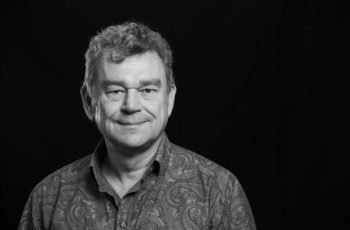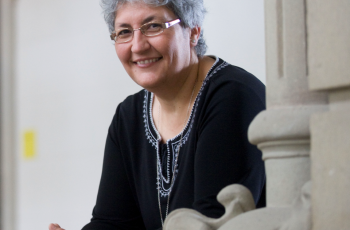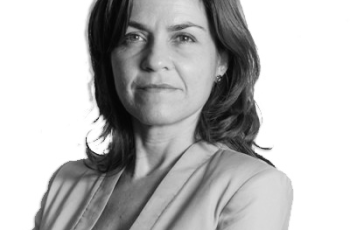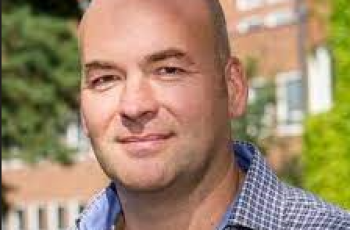In the faces of NeurotechEU series, several people in the NeurotechEU alliance are interviewed to learn about their experiences and insights.
Orsolya Gregán, a prominent figure within the NeurotechEU initiative from its inception, currently leads the Center for International R&D Relations at the University of Debrecen. With her extensive experience in international projects, she offers invaluable expertise to the Alliance.

I believe that listening to and integrating each other's opinions and ideas brings us closer to our shared objectives.
Orsolya Gregán
You previously led the Regional Innovation Agency.
In the context of European University Alliances, maintaining contact with industrial partners and the role of innovation also play a crucial role. This is true for our project and during meetings like the FOREU2 sessions. I believe that listening to and integrating each other’s opinions and ideas brings us closer to our shared objectives.
What experiences have you gathered over the years in the NeurotechEU project?
My experiences in the project have emphasized the importance of collaboration in all situations. Over the extended period from conception to implementation, circumstances can change, and challenges arise. I believe that high-level collaboration, effective coordination, and mutual trust are crucial in overcoming these challenges.
Our entry into the project was marked by high expectations. NeurotechEU aims to achieve significant milestones in advancing higher education, a vision driven by President Emmanuel Macron to enhance European universities’ global competitiveness. While students remain our primary focus, the composition of our alliance holds equal importance.
The project faced an unexpected hurdle with the introduction of COVID-19 protective measures. Nonetheless, I am grateful for the positive relationships that have flourished during this time.
What do you consider the University of Debrecen’s greatest strengths within the NeurotechEU project?
One of our standout assets lies in our multidisciplinary nature. Within our 13 faculties, numerous areas of research are closely intertwined with neurotechnology. This has been brilliantly demonstrated at our events, where faculties have united under the NTEU banner, collaboratively presenting their research to the public. Our unwavering engagement has been another noteworthy strength. We’ve prioritized responsiveness and active contributions throughout the project.
The European Commission’s decision presents a substantial challenge for the University of Debrecen, as it restricts access to European Union resources for model-changing Hungarian universities…
Upon learning of this decision, we engaged in numerous discussions both within the alliance and internally. The University of Debrecen’s team remained committed, never let the alliance down. We successfully completed the work on the proposal of the second phase, despite the prior decision that our university would appear only as an Associated Member.
Our partners have expressed their support, and once the restrictions are lifted, we will have the opportunity to rejoin the project. In the interim, we are actively participating in the NeurotechRI project, which includes the founding members, with the exception of the University of Oxford, regrettably lost due to Brexit. On a positive note, we had the privilege of hosting Professor Zoltán Molnár in May, and during his visit, we explored potential future collaboration opportunities.
Throughout the project your dedication and commitment were evident. What else is your passion?
My family is of great importance to me. Despite my children being grown, spending quality time with them remains significant. We also have three rescued animals, which bring both joy and require considerable attention. Additionally, I prioritize sports, a lifelong passion. I have been actively involved in gymnastics since the age of 3, explored various ball games, and found enjoyment in cross-fit training. Sport helps me unwind and maintain both my physical and mental well-being.
You mentioned the role of students. How do you see it?
The primary audience of the NeurotechEU project comprises higher education students who gain access to enhanced educational programs. In my perspective, there is a significant opportunity for students joining the program to build a network, enabling them to share the latest research findings, neurotechnology-related events, and job opportunities. I firmly believe that personal relationships play a vital role in our lives, and we can offer valuable resources to students studying at or graduating from our universities.
We should also consider high school students in this context. It’s noteworthy that the international BrainBee competition is now taking place in Hungary, where Debrecen’s students have achieved remarkable results. Preparation played a substantial role in this success, with Dr. Péter Szücs, chairman of the Department of Anatomy, Histology, and Embryology at the University of Debrecen, dedicating considerable effort.
Debrecen’s representatives in the Student Council have consistently shown dedication. Initially, Csongor Szepesi served as Treasurer, and now, Lidia Gömöri holds the position of Secretary. As we often emphasize, NeurotechEU stands with the students, for the students, and by the students.
What advice would you give someone working at another university in a similar position to NeurotechEU?
I believe that individuals in similar positions share a mutual willingness to get to know each other and collaborate effectively. In this regard, our collaboration has been highly effective. One aspect that I find incredibly fascinating in this project is the diverse range of individuals we’ve had to collaborate with. Researchers, educators, students, administrative staff, and consideration of the external environment all played a role. We have to pay attention to other European University Alliances, legislation at national and European Union levels, and the impact of global events. NeurotechEU has made a concerted effort to respond to these elements and, to some extent, anticipate their influence.
What values do you consider most important?
Given the diverse composition of cooperating universities within the alliance, structure and transparency are indispensable. Various time zones, distinct academic schedules, and differing national holidays and obligations among institutions illustrate the need for coordination and flexibility in all instances.
Since it’s impossible for everyone to excel equally in all areas, which would render our collaboration meaningless, we must support one another for shared success. If one of us makes a mistake, which is only natural, it is essential to evaluate and learn from it to prevent its recurrence. Offering apologies when necessary also plays a role. Through our collective work, we serve as examples for our students, further underscoring our responsibilities.
By: Krisztina Csiba from the University of Debrecen










